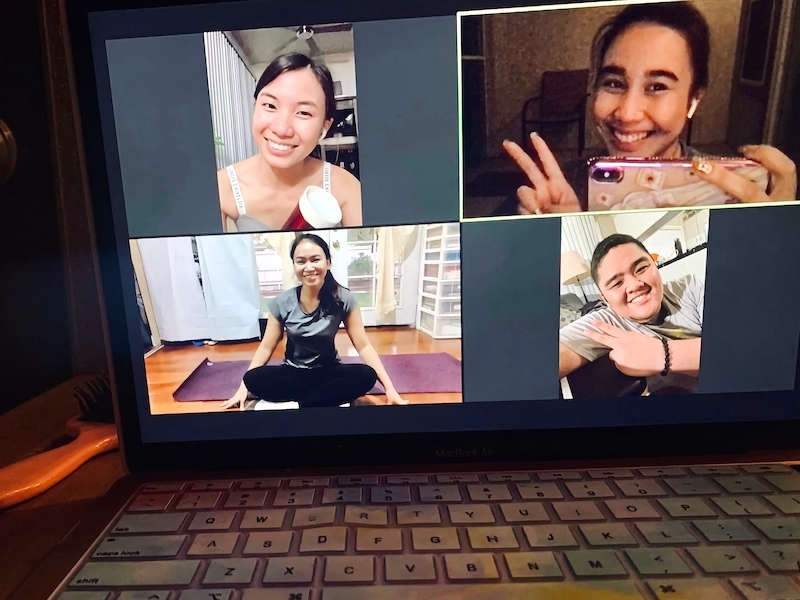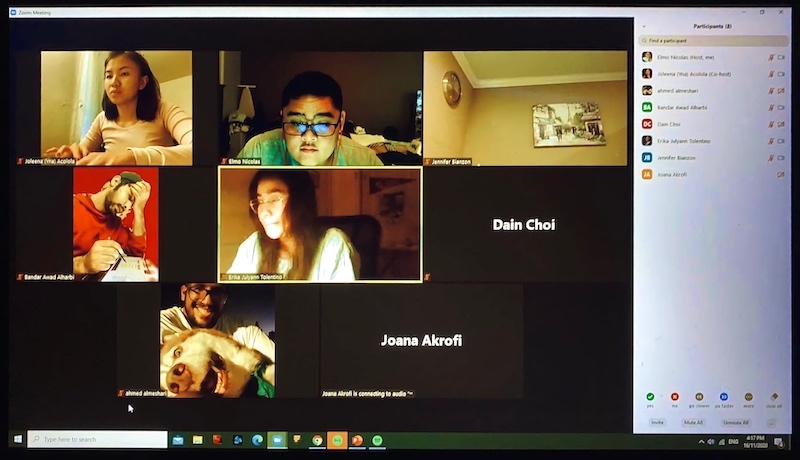Student Blog
Classes

Overcoming Rejection and Feelings of Inadequecy ⟩
December 9, 2020, by Savi
Classes Getting Involved Life Hacks
As my last semester of classes has come to an end, I had anticipated feeling relieved. I now sit here, having passed all of the courses I need to graduate from this Master’s program, feeling immensely overwhelmed and discouraged. Up until this moment, everything had been mapped out for me. Each class that I would take and when I would take them were pre-determined. I knew that I just had to work hard and do my best in order to be successful academically.
I am currently studying for the COMPS (comprehensive exam) that I will be taking on December 15th with the rest of my graduating class and I am worrying about my future. This future is not pre-determined and it is scary, especially amidst a global pandemic. It is up to me to pave the way.
During this hectic time, I have also decided to pursue my OTD. After going through the interview process for the USC Chan Division residencies and being informed that I did not receive one, I felt extremely discouraged. I took this rejection as an indication that I was not good enough to get the opportunities I had been aiming for. I became anxious over the fact that I would have to find my own residency, especially because I was worried that my lack of experience in my field of choice would prevent me not only from getting a residency but also a fieldwork II experience.
This stress and feeling of inadequacy was something that was difficult to overcome. After sitting back and reflecting, I came to realize that I was letting one rejection skew my view of my self-worth and capabilities . . . just one rejection held that much power over me!
It wasn’t until I realized that if I didn’t believe in myself then who would!? I decided that if I didn’t try my best to go after the positions and experiences I feel like I deserve and want then I would regret it tremendously. I couldn’t let one rejection deplete my confidence and I knew that even if there were more rejections to come I would learn from them and keep moving forward.
I spent the coming weeks being polite and persistent. I began communicating with people who could help me develop the residency position of my dreams. Putting all the pieces together was tricky, and it took a lot of persistence to progress things further. Advocating for myself and my worth was key in progressing things forward, as well as acknowledging the work and effort the people communicating with me were putting in.
Your future is what you make of it. Be persistent, confident, understanding, and kind. Know that the person you are talking to will never know the mark you can make if you don’t advocate for yourself and your worth. Don’t let rejection take a toll on you. Sometimes putting in the extra work to make things happen really pays off! Advocate for yourself and believe in yourself because no one can do it better than you.
⋯
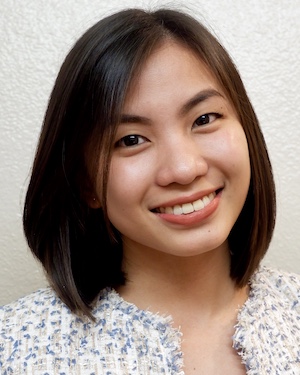
All About That Quarantine Life (Experiences + Study tips) ⟩
November 27, 2020, by Yna
Classes Life Hacks
Studying in quarantine is something that none of us has ever done before, so for those of you who are feeling lost, well, you are not alone! As I have mentioned in my previous blog, this has brought me feelings of anxiety too as I was about to take my final exams (which all went pretty well by the way, yay!). As I have spent a whole semester of figuring out how to navigate this new setup (all while trying my best to look like I have it all together . . . lol), I have picked up a few hacks that some of you may find beneficial.
Develop healthy habits and routines
One of the benefits that many of us have found from doing remote learning is getting to skip the extra steps of having to prepare for and travel to school. With classes being held online, you really only have to worry about being presentable from the chest up (because they’re never going to find out if you’re still in your jammies anyway, right?) and traveling from your bed to your study desk right beside it. I am not even going to lie, I enjoyed being able to just roll out of bed and go straight to class whenever I don’t feel like getting up early. While this might have given me extra hours of precious sleep, in the long run, I realized it became an unhealthy habit I had adopted. I started from waking up at least an hour before class, to 30 minutes prior, to 5 minutes before, and there was even a time that I was late because I overslept (a huge shout out to my dear classmates who noticed I was missing and immediately gave me a wakeup call)! I mean, yeah, everyone has those down days when you’re just feeling extra tired and in need of more sleep; but I realized I had overused this benefit to the point that I had been skipping breakfast altogether for consecutive days. Over time, I found my everyday routine drastically changing — eating habits were disrupted and irregular sleeping patterns have developed — ultimately affecting my study habits because the lack of routine often left me feeling all over the place and unable to focus. And so, I really would suggest waking up a little bit earlier before class to give you some time to eat a good breakfast, savor your cup of coffee, take a shower, maybe do some reading on the materials, and really, to just get your mind oriented and ready for class. And honestly, who doesn’t love just getting a moment to yourself at the start of the day? Besides, how you begin your day kind of sets the stage of how the rest of your day is going to look like, so try your best not to start it in such a rush.
Set up your space neatly
Not only do you need to set up your mind, you also need to set up your space all ready for work. A cluttered environment = a cluttered mind! I ended up getting a new desk and chair that’s ergonomically correct for my workstation to facilitate proper posture, but this really isn’t a necessity. There are many ways to adapt and work with what you currently have (using pillows for your back, step stool for feet support, etc.) — we as OTs know all about this! I’ve had to experiment a couple times playing with different positioning of my desk that works best for me in relation to lighting, room temperature, and appearance on Zoom background (making sure the space behind me has low traffic to avoid bloopers during class, LOL).
Take breaks
I know, you’re probably already tired of hearing this; but truth be told, this new setup has got us sitting in front of our computers for most of the day — without us even realizing it! I admit, I, too, am a victim of this. The advent of technology has advanced the speed of information processing by a ton, that it’s getting harder and harder for us, humans, to keep up. Nevertheless, we still try our best to answer emails as soon as they get to our inboxes, and accomplish any other task that needs to be done “just to get it out of the way,” am I right? The to-do list goes on and the next thing you know, you had already been working for hours straight. And when you finally decide to take a minute to pause, that’s when you’re going to feel them all at once — strained eyes, pain from the neck all the way to your lower back, hungry stomach, tired arms and fingers from hours of typing with poor posture. This is why I really appreciate our professors who sees to it that they allot some time during the class to give us multiple breaks as our chance to stretch, hydrate, go to the restroom, or grab something to eat (to be honest, sometimes I even take a nap — just make sure you wake up in time!). You can also set up your own physical activity reminders at different points throughout the day using your smartphone or watch.
Get physical!
In relation to my previous tip, I found it helpful to incorporate exercise in my weekly routine as my form of physical activity to battle this increasingly sedentary lifestyle. Of course, it’s not like I just woke up one day deciding to start working out and then consistently did it. New routines take time to develop, so don’t be too hard on yourself! You really don’t want this to be another source of pressure for you aside from other responsibilities that you already have. What definitely helped me get motivated and stick to the schedule was doing it with my friends, who also happened to be in the same program as mine — leaving us with pretty much similar class schedules and free time to exercise.
Study in groups
Since we’ve already set up workout sessions, might as well extend it to study sessions with friends too! I know, you’re practically already in Zoom most of the day for classes so you might ask: why choose to add more hours on the screen? Well, for me, seeing other people (albeit virtually) so focused on studying gives me the boost to do my own studying too. Basically, one of us sets up a meeting and keeps it open for several hours where people are free to come and go. This gives everyone a little bit of flexibility since we all have other responsibilities in our own busy lives. As a bonus, if we do a great job focusing for a couple hours, we reward ourselves with a few minutes to chill and casually talk with each other (someone’s gotta be responsible in making sure we go back to studying, though!)
Some of the students in the Post-Professional Master’s program studying for our final exams. Credits to Elmo for the photo, and also for setting up the Zoom meetings for the class!
In addition to these, you can also check out Savi’s blog and find some tips on staying organized! I hope you find these useful for your own studying, especially those who will be taking their comprehensive exams next month. You got this! Best of luck to you all, and Fight On!
⋯
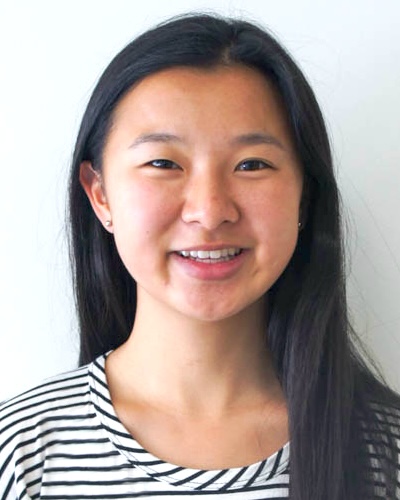
Clowning Around ⟩
November 18, 2020, by Bethany
Classes
Recently, our OT 540 Leadership Capstone class had a visit from an AOTA member who was able to discuss with our class the importance of advocacy and quality in OT. The speaker was invited to stay for our next special presentation. And the “presentation” was a visit from clowns. Yes. Three clowns, complete with red noses, hats, and names like Yebo, showed up in our Zoom meeting. At first, the whole class of 138 people was extremely confused. Our serious discussion about the quality of OT services had suddenly turned into Captain Noodles asking our professor if she had picked her nose today. One of our classmates got so freaked out he hid under his desk and was deemed by the clowns to be a professional escape artist.
As various text messaging groups pinged back and forth trying to find the source of the hilarity, one of my friends sent a link to the Institute for Theatre & Social Change (ITSC) and their medical clowning program, and we recognized one of the clowns who visited us on their website. The medical clowns use laughter and humor to impact medical and psychological benefits. The program itself is a unique partnership between the USC School of Dramatic Arts and other medical centers associated with USC, such as LAC+USC Medical Center and Children’s Hospital of Los Angeles, where the clowns will do clowning rounds and visit patients at these sites. However, with safety regulations due to the pandemic, the clowns have moved to virtual platforms. You can even sign up for your own 15 minute Zoom clowning session!
It is amazing to see our fellow students from other schools across USC coming together to impact health. Thank you for your visit! As strange as it was to have three clowns show up during our Zoom meeting, it was a nice stress-reliever and a good laugh. Keep up the good clowning work! And, fellow students, as we head into finals season, keep laughing and keep being your awesome selves.
⋯

Will I Have Time to Work During the Master’s Program? ⟩
November 4, 2020, by Savi
Classes Getting Involved
As the Nov. 1 application deadline has just passed, I have been receiving many questions from prospective students about balancing a job and graduate school. Although this experience will vary from person to person, I thought it could be helpful to give you all a bit of insight into my experience balancing work and graduate school!
The Entry-Level Professional Master’s program begins with a jampacked 8-week summer semester in which you complete foundation-based courses like Kinesiology and Neuroscience in an extremely short amount of time. This makes for a high intensity and fast-paced semester with class from Monday-Friday 8:00am-4:00pm and a few hours studying upon your return home each afternoon. I, therefore, chose not to work during the first summer. I had also just completed my undergraduate degree a week before beginning the Master’s program and hadn’t even found a place in LA to live yet! I was grateful to have a few hours on the weekend or on Friday evenings to apartment search, find a job for the fall semester in my new neighborhood, and get to know the fun city I was living in.
During my Fall semester in the Mental Health Immersion, I felt like a weight had been lifted from my shoulders. I was in class three days a week, completing my Fieldwork I one day a week, and had my Friday’s completely free! This allowed me more time to take on a part-time job as a gym receptionist and sales associate at a gym near my apartment. They allowed me to work extremely flexible hours, as they understood I was not available during most of the week. I worked the evening shift after school one night a week, the Friday afternoon shift, and a weekend shift, which all combined to approximately 20 hours a week of work on top of graduate school. Was this easy? No . . . it was really overwhelming at times and I did not have much time to participate in social or revitalizing occupations (such as sleeping a sufficient amount of hours every night!). I am very thankful that I was able to fit in some studying or homework during my work hours if we were having a slow day, that I loved spending time with my co-workers, and that I was allowed to take a free workout class during each shift. If this wasn’t the case, I do not think I would be able to commit 20+ hours a week to a job while completing my Master’s degree (also I wouldn’t recommend it regardless because it was TOUGH). I continued this workload during the following Spring Semester in the Pediatrics Immersion. It was nice to make some money and work on applicable skillsets for the OT field, such as adjusting your communication style depending on the customer, giving clear and concise directions, or staying organized and calm during chaotic or unforeseen situations.
At the end of my Spring semester, I was exhausted and I needed a change. I knew the Adult Rehabilitation Immersion was coming next and as a student interested in working in an inpatient hospital setting with adults in the future, I wanted to have more time to focus on all the valuable coursework. The Student Ambassador position became available and as a previous college tour guide, I was thrilled by the opportunity to step into a similar role for a program I love dearly. After applying and interviewing, I was lucky enough to be chosen as one of the Student Ambassadors and was extremely thankful for the expectation that we were to work 10 hrs/week. On top of that, working for the Chan Division allows you a lot more flexibility with your hours, as the faculty you are working for understand the workload you are trying to balance. Thank you to Kimberly Kho, our AMAZING supervisor/boss, for being so flexible, understanding, and respectful of our busy and ever-changing graduate school schedules. Kim has always reinforced that academics takes priority and has allowed us to adjust our schedules to provide more time on particular weeks to study for exams, write big papers, etc. Visit Yna’s blog to learn more about what we do as student ambassadors!
From my experiences, you may have noticed a trend. Can you work in grad school . . . yes! It is doable depending on what job it is and how much flexibility it allows you. I am grateful to have had understanding bosses and incredible, fun, and kind co-workers in both of my jobs! Be sure to weigh the pros and cons of the job before you commit to it and make sure that you are prioritizing your physical and mental health! As Kim says . . . you are a student first.
⋯

Life as a Student Worker ⟩
November 2, 2020, by Yna
Classes Getting Involved Videos
“Is it possible to work while studying?” This is one question that frequently comes up and understandably so, given the full-time enrollment and the intensive nature of the academic programs at USC Chan. The answer to this question is yes, it is a possibility for one to work while studying. Although it really depends a lot on the individual, I would say roughly about 10-12 hours per week is recommended. To give you a better idea on how this is dispersed throughout the week, I am going to share with you my typical work-study schedule and some of my duties as a student ambassador.
As a Post-Professional Master’s student, I am currently taking a total of 18 units for this fall semester, comprised of 3 core courses (8 units) and 3 elective courses (10 units). For a better visualization, here’s a table showing how my weekly class schedule looks like.
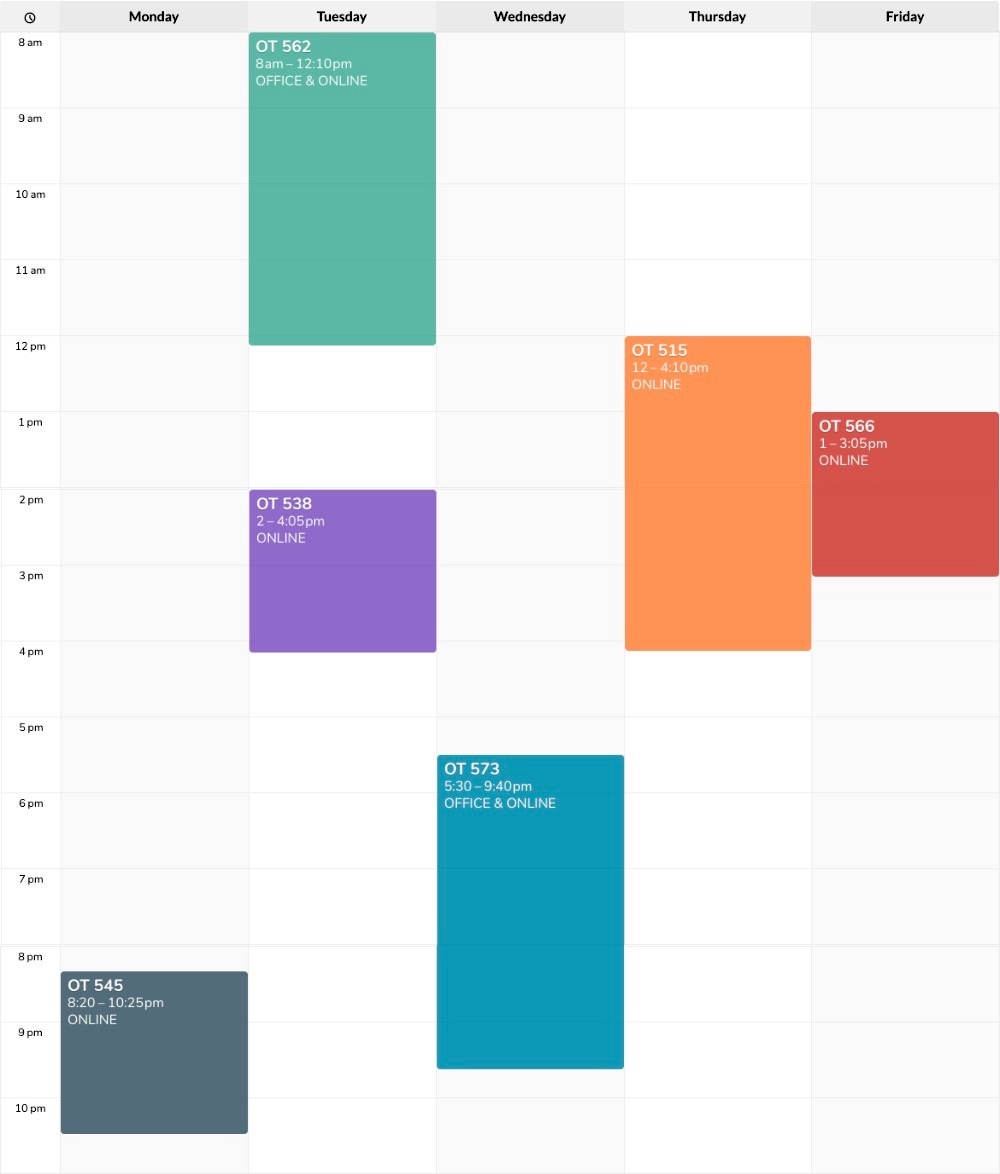
Class schedule for the fall semester
As you can see, you really only spend a few hours of your day sitting in class. However, do note that for each course, there are out-of-class activities and requirements that need to be worked on, which could take up a substantial portion of your time.
I schedule my work hours as a student ambassador around my class schedule, so I typically work on Mondays, Wednesdays, and Fridays in the morning before my class, totaling to 10 hours per week. One thing that I really like about being a student worker at USC Chan is the flexibility in scheduling that they give students that allow us to move our time around in case we have exams or other requirements to prepare for. This is also made possible by the amazing team of student ambassadors who are always willing to help out whenever one of us is having trouble fulfilling our duties. Our supervisor, Kim, never fails to remind us on every team meeting to prioritize our academics and also take care of our health.
One of my tasks as a student ambassador is to liaise with Global Initiatives for certain projects. This is another area where I find the flexibility in scheduling really helpful, especially for time-sensitive projects, because you can choose to dedicate most of your work time to accomplishing it or even work on the weekend if you’re willing to. For example, for the recent World OT Day last October 27, we created a video that shows how people all over the world have reimagined their doings. Check it out below!
Sometimes, I also give informational presentations together with the admissions team, as part of our role to help raise awareness about occupational therapy and our programs at USC. Other ways we can disseminate information and share our experiences as current students and student workers is by posting to Chan Division social media accounts (check us out on Facebook, Instagram, and YouTube!), writing blog posts about our experiences, and answering questions from prospective students. Lastly, student ambassadors also partake in certain steps of the admissions process, with the guidance of our Director of Admissions, Dr. Anvarizadeh.
Hopefully this glance into my life as a student ambassador answers some questions you may have about being a student worker! If you have any questions, you can reach the ambassadors at .(JavaScript must be enabled to view this email address).
⋯






